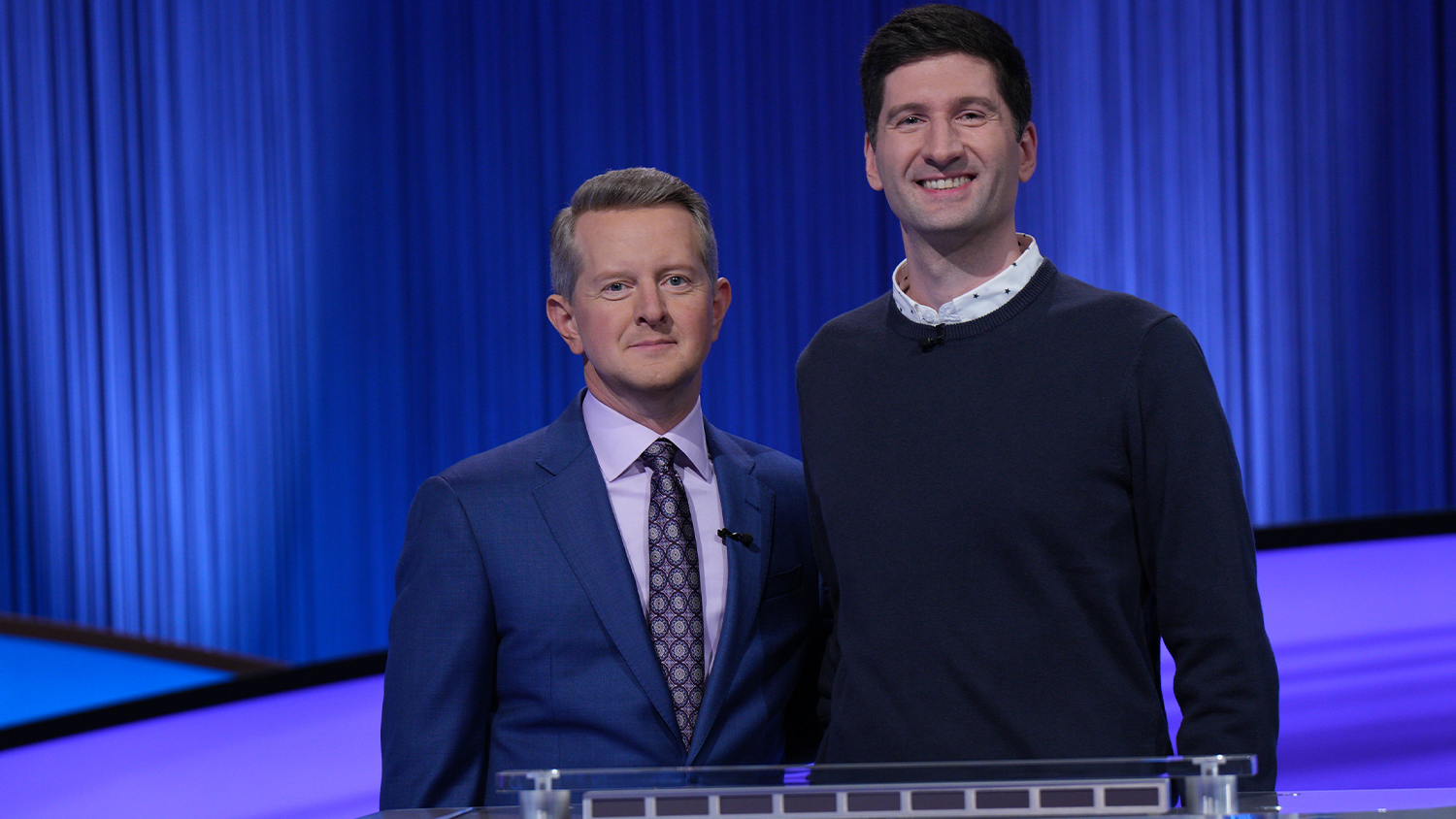A librarian from Apex, North Carolina, he is the assistant director of the NC State College of Education’s Media and Education Technology Resource Center (METRC) who fulfilled a lifelong dream by recently competing on Jeopardy! Who is Scott Summers?
Summers, who has worked with METRC since 2022, recently competed in an episode of the popular game show that aired May 1. Although he ultimately lost to the returning champion, Summers answered 12 questions correctly and enjoyed his experience preparing for the gameshow and competing on it.
Summers recounts his experience and study strategies below.
The following has been edited for length and clarity.
On my Jeopardy! audition process: The process begins by taking the [50-question] Jeopardy! anytime test. I took the test in January 2024, and it was my 8th attempt at taking the test. On Aug. 6, I saw a message in my email about signing up to take an additional 50-question test on Zoom. This is to ensure the first test performance was legitimate. On Aug. 30, I was invited to another Zoom meeting, but this time it was for a mock game and interview! I had my mock game on Sept. 10, and they informed me that I would be in the contestant pool for two years.
My phone rang on Jan. 29, 2025 and, after going through my information, the producer said, “And oh, by the way, this is THE call! Congratulations, you’re going to be on Jeopardy!” I was absolutely floored by the news! My lifelong dream was coming true.
On how I prepared for Jeopardy!: I brushed up on areas I knew well rather than trying to learn huge swaths of information that I didn’t have some knowledge about already. I spent some time with flashcard apps and doing a lot of searches on Wikipedia. I made sure I knew the order of the presidents, state capitals, well-known geographical features and some high-frequency world capitals.
There are “Jeopardy! Pavlovs” which are asked over and over again across the seasons of the show. I took a look at those and quizzed myself on them. There’s an amazing website called J-archive that has all the clues from many of the existing episodes. It was an amazing resource that allowed me to play practice games in my spare time.
On how I learned and retained information: Flashcards definitely helped! I identified strategies that worked for me and ran with them, and I think teachers can do the same thing with their students. With the plethora of educational technology tools available, teachers can engage students in building knowledge in a gamified way by using tools like Quizziz, Gimkit, and Quizlet.
Jeopardy! is such a cultural institution that students still love playing the classic Jeopardy! review game in class. The staying power of Jeopardy! is definitely a testament to the power of knowledge, information and staying curious about the world around you.
On how I’d describe my Jeopardy! experience: Pretty surreal. The stage is so much smaller in real life than it appears on TV; there are about 200 people in the audience watching, and the whole crew is amazing. Also, meeting Ken Jennings was wild. I watched his initial 74-game run as a contestant in 2004, and I’ve enjoyed watching him grow into the host role.
Jeopardy! was always must-see-TV in our family. I just didn’t know that one day I would be looking at myself on screen and hear the iconic Johnny Gilbert introduce me as one of that day’s contestants. Overall, I had an amazing time, met a bunch of great and friendly people in the green room, and got to be on a show that I have watched for more than 25 years.
On being a librarian: When I was interviewed to become a contestant, they asked me why I think so many librarians get on the show and do well. My reply was “Well, as librarians, information is kind of our thing.” The same thing is true for teachers. We have the opportunity to get students excited about the idea of learning something.
I hope that teachers and librarians will continue to nurture a love of learning and a curiosity in our students. I always told my students that “Life is as easy as ABC: Always Be Curious,” because if you have the capacity to wonder and think and dream, then you have the capacity to learn, and if you can learn, you can do anything.
- Categories:



